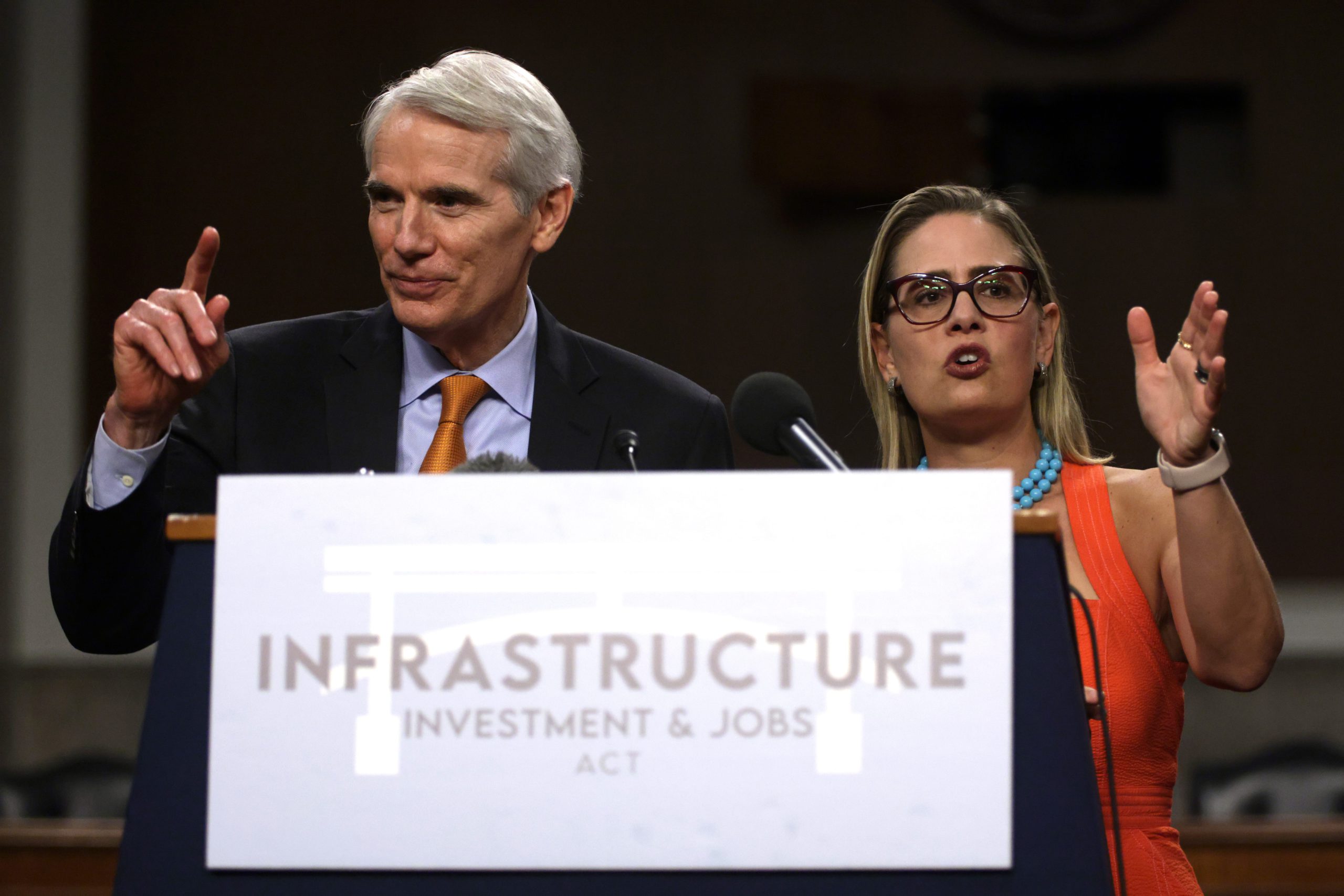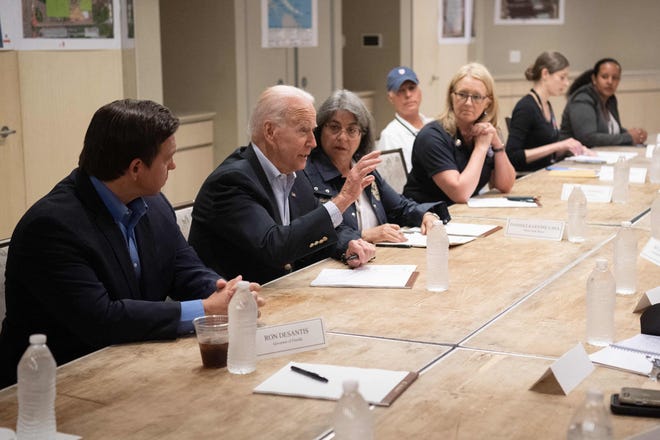

WASHINGTON – The Senate on Tuesday approved a $1.2 trillion infrastructure bill, clearing a major roadblock for a core Biden administration priority – but the legislation must overcome more obstacles before it becomes law.
Senators voted 69-30 to approve the package, which would direct billions to modernize the country's roads, bridges and transit systems while also expanding high-speed internet systems and the nation's network of electric vehicle charging stations. The bill now goes to the House.
The legislation calls for $550 billion in new spending. Among the major investments in the bipartisan package are $110 billion for roads and bridges, $39 billion for public transit and $66 billion for railways. It also contains $55 billion for water and wastewater infrastructure as well as billions for airports, ports, broadband internet and electric vehicle charging stations.
Roads, broadband and bridges::Here's what's in the infrastructure agreement
The vote culminated weeks of tense negotiations between the White House and a bipartisan group of about 20 senators trying to craft a centrist package that would entice enough Republicans to join every Democrat in overcoming a filibuster to pass a bill.
"When the Senate is run with an open hand rather than a closed fist, senators can accomplish big things," said Senate Majority Leader Chuck Schumer, D-N.Y., who called the effort "decades overdue" to revitalize the country's infrastructure. "Despite this long road we have taken, we have finally, finally reached the finish line."
In a sign of the importance of the vote to the Biden administration, Vice President Kamala Harris presided over the vote, in her role as Senate president.
But the work is far from over. Senate Democrats will now proceed on the second track of their infrastructure agenda: an ambitious $3.5 trillion "human infrastructure" plan that that seeks to improve the nation's housing, education and health care as well as take dramatic steps to address the growing threat of climate change.
Progressives:Evictions win is latest example of House progressives' influence on Biden. That may affect the infrastructure bill
Not a single Republican is expected to support it, a hurdle Democratic leaders are hoping to vault by bringing up the bill through a legislative maneuver known as budget reconciliation that would pass if all 50 Democratic senators vote for it along with Vice President Kamala Harris' tie-breaking vote. But already two Senate Democrats – Joe Manchin of West Virginia and Krysten Sinema of Arizona – have expressed reservations about it.
The problem for supporters of the bipartisan infrastructure bill approved Tuesday is that House Speaker Nancy Pelosi, D-Calif., won't bring that bill to the floor for a vote unless the Senate has passed the larger bill as well. Even if she wanted to hold a vote on the bipartisan package, Democratic liberals in the House who are seen as crucial to the bill's passage have made it clear they will oppose it if they don't see the Senate pass the "human infrastructure" measure.
"We are not voting for the bipartisan bill without the reconciliation bill," Rep. Pramila Jayapal, D-Wash., who chairs the House Progressive Caucus, told USA TODAY Thursday.
Movement on the larger bill could happen quickly. Schumer immediately moved to a vote on a resolution laying out the framework of the reconciliation bill. Once that passes, deliberations on the actual elements and language of the measure would begin with a final Senate vote later this fall.
More:Infrastructure bill advances to Senate debate, clearing major hurdle after weeks of negotiations
The bipartisan bill was backed by 17 Republican senators (as well as every Democrat) during a procedural vote last month. But that support seemed shakier among Republicans after the Congressional Budget Office on Thursday reported the bill would add $256 billion to projected deficits between 2021 and 2031.
"This is absolutely unacceptable, especially at a time when Montana families are already dealing with soaring inflation and skyrocketing prices on everything from gas to groceries," Sen. Steve Daines, R-Mont., said on the Senate floor. He also voted against moving forward with the infrastructure proposal earlier.
Contributing: The Associated Press
Source link








